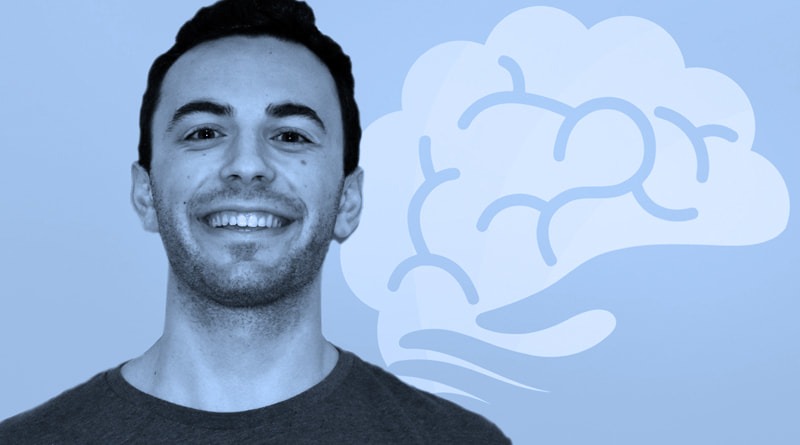
Is ADHD a Disability or a Difference?
by Cynthia Hammer, MSW, Executive Director, the Inattentive ADHD Coalition
ADHD: Disability or Difference?
People with ADHD line up on either side of this question. Some believe “ADHD is a disability,” while others maintain “ADHD is a difference.” The Americans with Disabilities Act defines disability as “a physical or mental impairment that substantially limits one or more major life activities.” The Merriam-Webster dictionary defines difference as “the quality or state of being dissimilar or different.” A difference implies there is no impairment; if there is impairment, it is no longer distressful and limiting to a person’s life.
For me, ADHD is both a disability and a difference. Which word applies depends on where a person is in their ADHD journey.
When ADHD is a disability, there is something the matter with the person that they want changed or improved. They do not know what makes their life a continual challenge. Their unhappiness and struggles drive them to seek help. Their disability is why they see a physician or psychologist searching for answers. After they are diagnosed with ADHD, they can start their journey– to transform their disability into a difference. However, people vary in their ability to make their lives less challenging and to make their ADHD insignificant.
Timeliness of Diagnosis
Several factors affect a person’s success in completing or even starting the ADHD journey. A diagnosis during childhood confers a benefit as the child, and his parents understand why the child behaves a certain way. The earlier someone knows what causes many of their difficulties, the better equipped they are to counteract the challenges by creating helpful habits.
An early diagnosis lessens the likelihood that the person is criticized for being “lazy, unmotivated and inattentive.” Instead, the person is more likely to receive understanding, support and accommodations. Adults with a delayed diagnosis of ADHD often have accumulated emotional baggage. They have memories of being belittled, diminished and shamed. Often, they develop depression and anxiety from living a life full of criticism. They have more issues to work through than someone diagnosed during childhood.
Medication
A second factor is medication. We know that the stimulant medications used to treat ADHD are highly effective and safe. Yet some are unwilling to try medication, while others never find a medication they can tolerate or that helps. Finding a helpful medication can significantly impact the ease of a person’s journey to self-fulfillment and contentment in life.
ADHD Symptoms
A third factor that affects the journey’s success from disability to difference is the number and severity of the ADHD symptoms a person has. ADHD is a spectrum disorder and some people have more profound ADHD than others. Our brains are unique and our ADHD is unique as well. People with ADHD vary in the number of symptoms and degree of severity.
For some, they can reduce their ADHD symptoms to a tolerable and manageable annoyance while, for others, the symptoms continue to be unsurmountable hardship. The person who claims their ADHD is a “difference” may have a more straightforward form of ADHD than the person who says their ADHD is a “disability.”
Social & Emotional Support
A fourth factor influencing the success of the ADHD journey is the number and kind of available social and emotional support. Is there money to purchase prescribed medication, hire assistance with challenging tasks, and work with a coach? What about therapy to heal emotional damage and build self-confidence and esteem? Can the person afford to pursue their passions where their ADHD hyperfocus is an asset? Do they have family and friends who understand their challenges and still offer unconditional love? Did they come from a stable home environment and currently have a stable home life? Were they raised with expectations so they experienced failure and know the importance of continual effort? Did they develop resilience and a willingness not to give up?
Do they have a history of trauma? Do they already have habits to support good health, such as adequate sleep, regular exercise and nutritious meals? Are they managing their responsibilities, or are they stressed out and unable to cope? Have they avoided bad habits or addictions like substance abuse, smoking, over-eating, gambling and gaming?
Do they value learning, so they educate themselves about ADHD from reputable websites and books?
A fifth factor is whether or not the person has co-occurring conditions such as ASD, OCD, bipolar disorder, depression, and anxiety, as these conditions add complexity and additional challenges to the ADHD journey. Learning difficulties could also be at play, such as dysgraphia, dyslexia, dyspraxia and dyscalculia.
Finally, the person’s general make-up will affect the nature of their ADHD journey. Are they very smart? Creative? Optimistic? If so, they may avoid some ADHD pitfalls because they figured out some workarounds. Their journey after diagnosis is shorter because they already have many strategies.
Therefore, dear reader, if you have completed your ADHD journey from disability to difference, be thankful for the many advantages you had along the way. And for those who feel stuck and overwhelmed with your ADHD disability, be kind and forgiving. Your journey is more challenging, but you can make progress. Take satisfaction and be proud of any forward movement.

Cynthia Hammer is the Executive Director of the Inattentive ADHD Coalition – www.iadhd.org.
She earned her Master’s Degree in Social Work in 1972. For many years she was a stay-at-home mom raising three sons while her husband spent long days at work as a general surgeon. She started a non-profit organization in 1993 to help adults with ADHD, and she recently started a different non-profit, the Inattentive ADHd Coalition to create more awareness of Inattentive ADHD. Visit it here: www.iadhd.org




